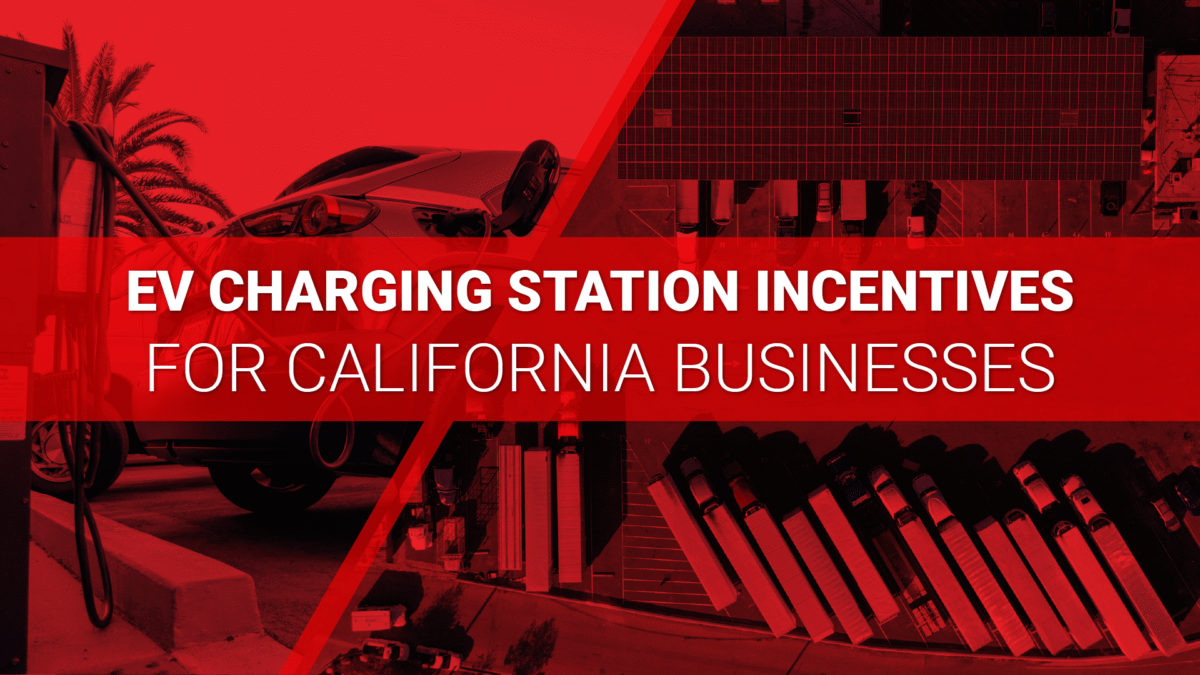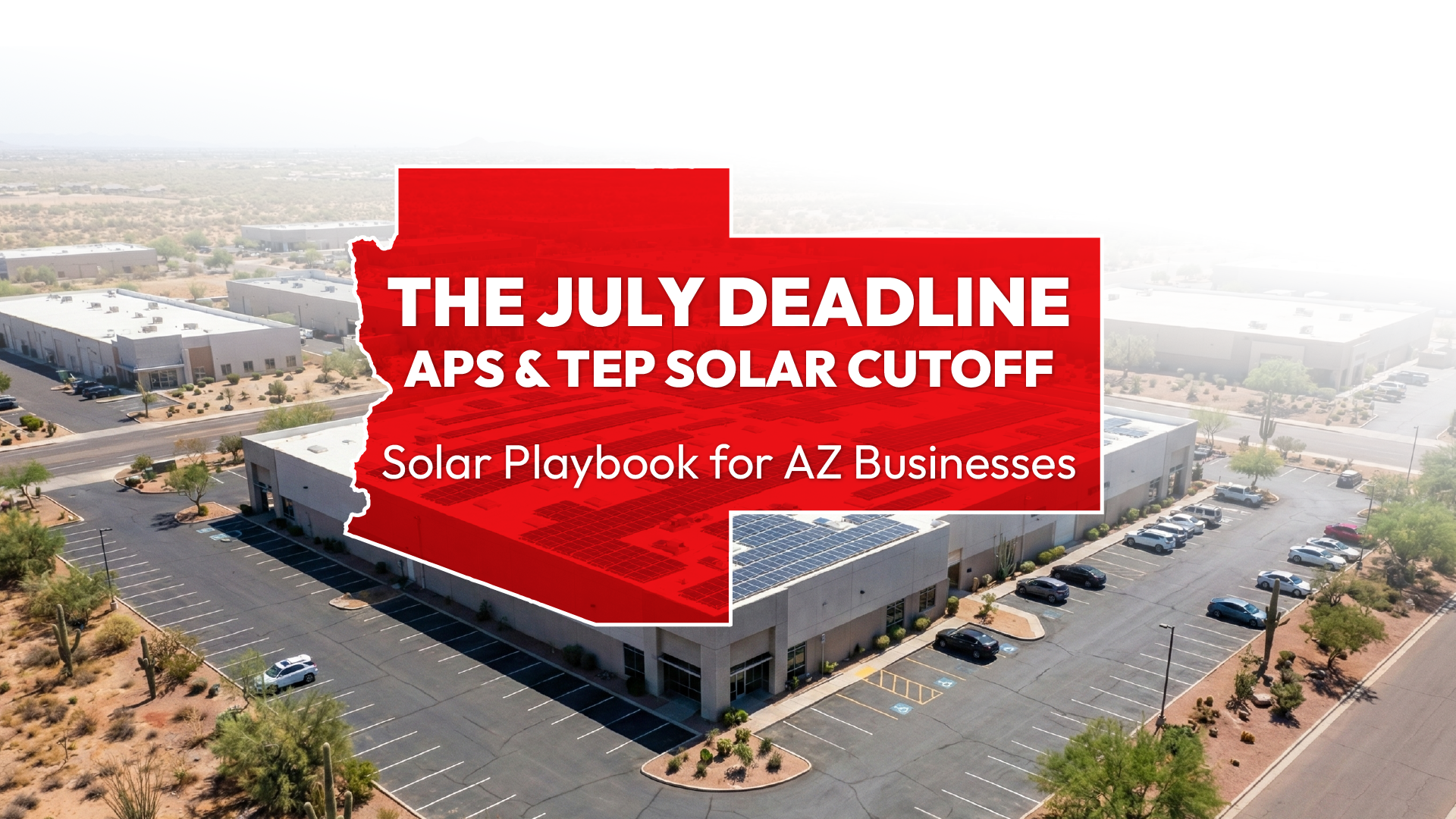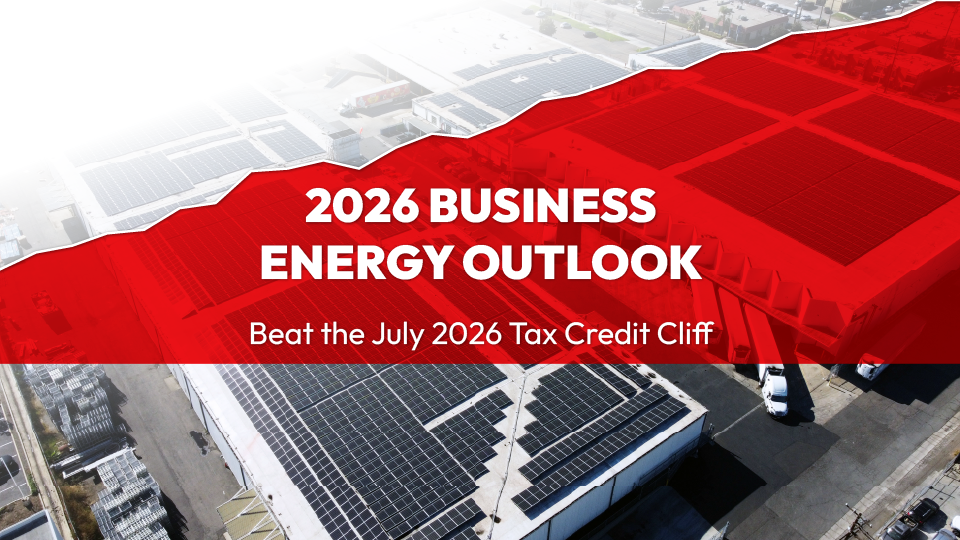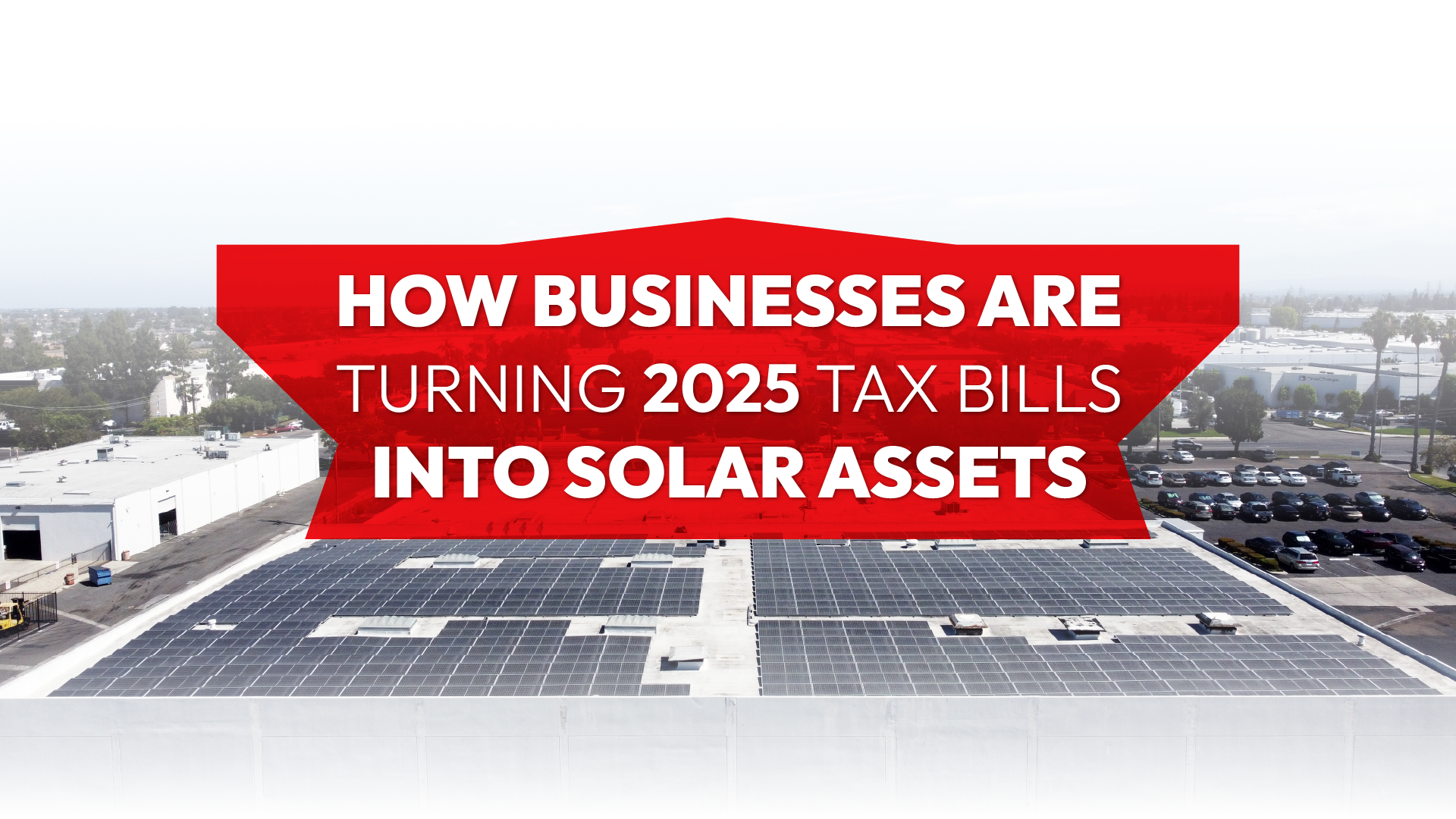
Electric Vehicle Charging Stations (EVCS)
As more drivers go electric, Electric Vehicle Charging Stations (EVCS) are becoming a valuable amenity for commercial workplaces and businesses. We may see the beginning of the end to an era – the age of the internal combustion engine, or ICE-age. While it may not be over quite yet, the transition is certainly underway.
Competitive businesses are always trying to determine what can give them a step up on competition, EVCS can make the difference to both customers and employees by openly showing commitment to sustainability.
Electric vehicles as a new technology have seen rapidly rising adoption, with increasing demand for the ability to quickly top-up battery charge on-demand and between destinations. With different charger types, ports and existing infrastructure, there is a lot to consider when implementing EV charging stations.
Paired with other proven technologies like commercial solar and energy storage systems, EVCS can provide EV charging services while generating positive cash flow.

EVCS Types
There are three types of electric vehicle charging stations, level-1, level-2 and DC fast-charging. For simplicity think of this analogy; if you’re filling up an olympic swimming pool with a garden hose, the only way to speed up that process is by adding more hoses, or use a larger hose.
Level 1 – Bucket
Level-1 chargers are essentially a glorified extension cord, all EVs are sold with a level-1 charger that you can plug directly into a standard 120-volt outlet. This is a base solution that typically gives about 5 miles of range per hour of charging. This results in 25 hours to reach a 100-mile charge capacity – for our analogy, this is like slowly filling up a bucket of water with a typical garden hose.
Level 2 – Jacuzzi Tub
Level-2 chargers are the first step-up, requiring more infrastructure and a 240-volt outlet; charging is significantly faster than level-1 but is very dependent on the EV. Charging at this level can provide 12 – 80 miles of range per-hour, a conservative average estimate is about 4 hours to reach 100-mile charge capacity. Compared to the bucket example, this is like filling up a jacuzzi tub with 5 hoses at the same time.
Level 3 DC Fast Chargers – Olympic Swimming Pool
The current peak of EVCS infrastructure, charging through direct current, DC fast chargers are the quickest available solution. Providing up to 40 miles of range in just 10 minutes, these chargers have the highest price tag. This solution made popular by Tesla, quickly delivers power directly to the battery without the need for inversion.
Different EV Connector Types
Excluding Tesla, In North America all EV manufacturers use the same connector for level 1 and 2 charging. Instead of unleaded, leaded or diesel, J1772 is also known as the “J-Plug” is what you would expect to see at level 1 or level 2 charging stations.
For DC Fast charging the three plugs would be Nissan / Mitsubishi CHAdeMO, and the combined charging system (CCS) “combo” plug.
Tesla owners can access Level 1, Level 2 and DC fast charging stations outside of their Supercharger network through adapters allowing access to the J1772 and CHAdeMO plugs. Tesla reportedly plans to release a combo adapter for the US market soon.
A Varying Solution
It is important to understand the needs that EV charging stations would solve for employees charging their EVs while at work. A good practice is to survey the individuals that would be using the stations in order to understand how many stations are needed to meet demand and what features are optimal.
Other considerations like this are important steps that Revel Energy takes as we design custom solutions for every building. Contact us today to learn how we can help your business increase cash flow with commercial solar, energy storage systems and EV charging stations.
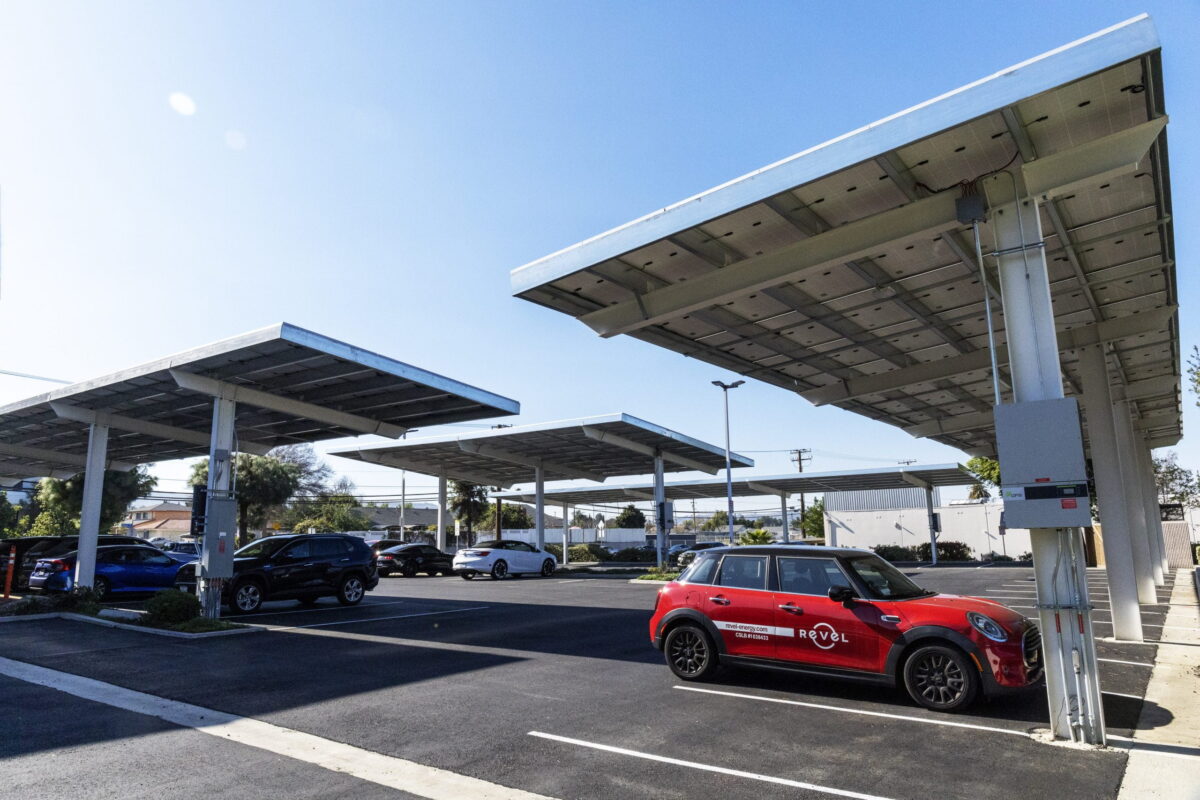
How Revel Energy Can Help Install EV Charging Stations
Revel Energy specializes in providing turnkey solutions for solar energy, energy storage, and EV charging station installations. Our expertise ensures that your project is tailored to your specific needs, whether you require a few Level-2 chargers for employee vehicles or DC Fast Chargers for fleet operations.
We guide you through every step of the process, from planning, permitting, installation, maintenance and accessing the many available rebates and incentive programs that help businesses install EV Charging infrastructure.
Commercial grade rooftop solar is ideal for: manufacturing, warehousing, logistics, industrial, retail, hospitality buildings and more with over 10,000 sq. ft. rooftops.
CARPORT SOLAR
Free standing carport solar generates added solar power for properties with limited rooftop space. Added benefits include shading and protection for employees vehicles.
Crucial for reducing peak demand charges. Automated to supply electricity when your panels won’t. Energy storage is ideal for businesses that incur significant peak charges.
As the popularity of electric vehicles increase, so does the demand for on-site charging. This sustainable amenity has become a parking lot fixture for competitive employers.
About Revel Energy
Revel is on a mission. Dedicated to renewable energy solutions since 2009, Revel Energy was formed to provide Commercial, Industrial and Agricultural businesses with alternative energy beyond solar. Revel stands out from the competition by paying attention to what makes good business sense to each individual client, implementing a wider range of technologies to free up capital and make businesses sustainable and more profitable.
OUR SERVICES
TURNKEY COMMERCIAL GRADE SOLAR, ENERGY STORAGE, LED LIGHTING AND MORE.
PROFESSIONAL GUIDANCE
CUSTOM TAILORED PLANNING
CONSTRUCTION & INSTALLATION
CSLB #1106092
See how these businesses saved on electricity, gained valuable tax credits and rebates with commercial solar and energy storage.
Client Testimonial: Kelemen Company
Corporate Business Park in Irvine, CA has created significant electricity cost savings through commercial solar installed across the 5-building business park.
Client Testimonial: Tice Gardner & Fujimoto LLP
See how this CPA firm saved on electricity and gained valuable tax credits through commercial solar that they used to keep cash in the businesses.

